15 Tricks To Stop My Cat From Waking Me Up At Night

Midnight meows, paw taps on your face, and the sudden weight of a furry body pouncing on your chest – sound familiar?
Nighttime cat antics can turn peaceful sleep into a frustrating game of feline dodge. If your kitty thinks 3 AM is the perfect time for attention, you’re not alone. These practical tricks will help both you and your cat enjoy uninterrupted nights.
1. Evening Play Sessions

Tire out your furry friend before bedtime with interactive toys that mimic prey movements. A wand toy or laser pointer can help burn excess energy.
Aim for 15-20 minutes of active play to satisfy your cat’s hunting instincts. Your exhausted kitty will be more likely to sleep through the night after a proper workout.
2. Scheduled Feeding Times
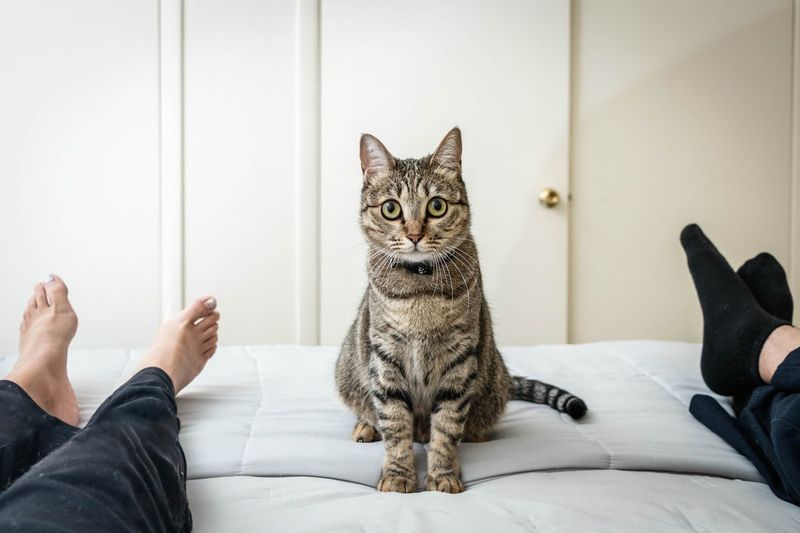
Hungry cats make persistent alarm clocks! Establish consistent mealtimes and avoid free-feeding throughout the day. Your cat’s digestive rhythm will adjust to your schedule.
Feed your cat’s largest meal right before your bedtime to prevent hunger-induced wake-up calls. Some pet parents use automatic feeders for early morning portions.
3. Automatic Feeders
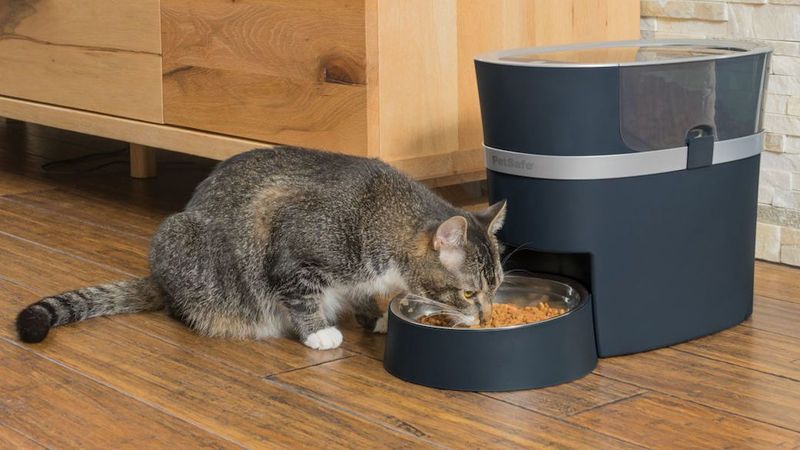
Technology to the rescue! Automatic feeders can dispense food at programmed times, including those early morning hours when your cat typically wakes you up.
Your cat will learn to wait by the feeder instead of pawing at your face. Many models allow multiple meal settings and portion control, helping establish routine even when you’re sleeping.
4. Cozy Cat Beds
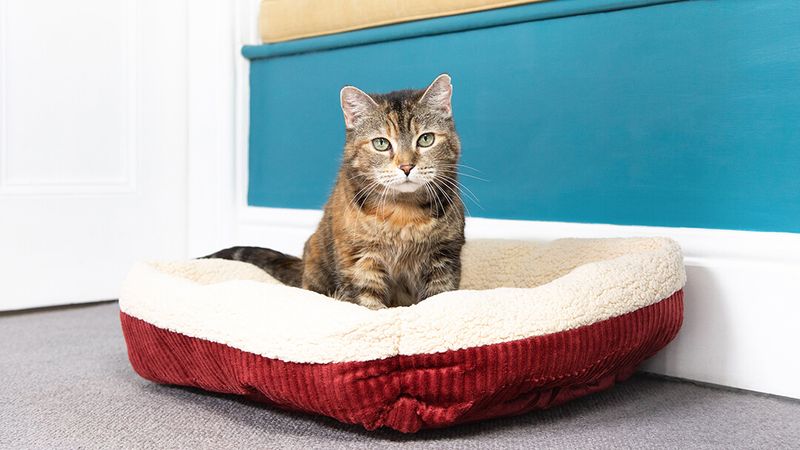
Create an irresistible sleeping spot away from your bedroom. Heated cat beds work wonders, especially in cooler months when cats seek warmth.
Place the bed in a quiet corner with a familiar-smelling blanket. Add a cardboard box or cat cave for security-loving felines who prefer enclosed spaces for deep sleep.
5. Night Lights
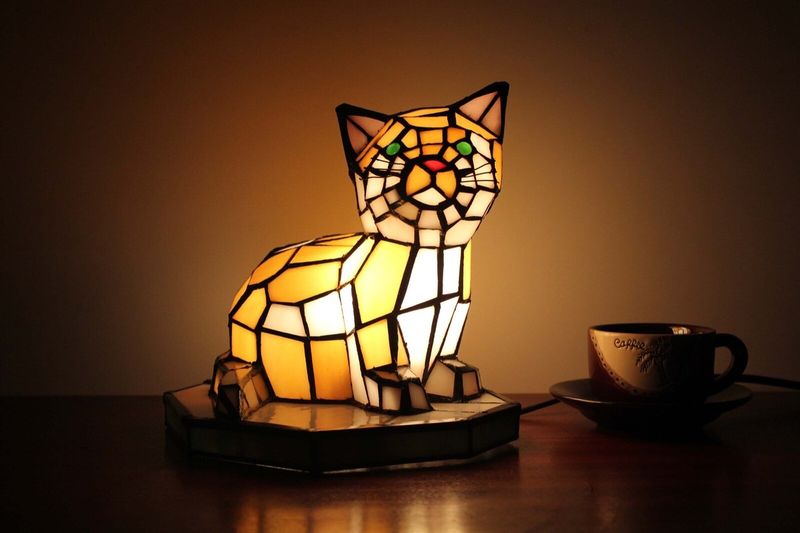
Contrary to popular belief, cats don’t see perfectly in total darkness. A small night light can help your kitty navigate without disturbing you.
Strategic lighting prevents your cat from knocking things over or becoming disoriented. This simple trick reduces anxiety-based meowing and scratching at your door when your cat feels uncertain.
6. White Noise Machines
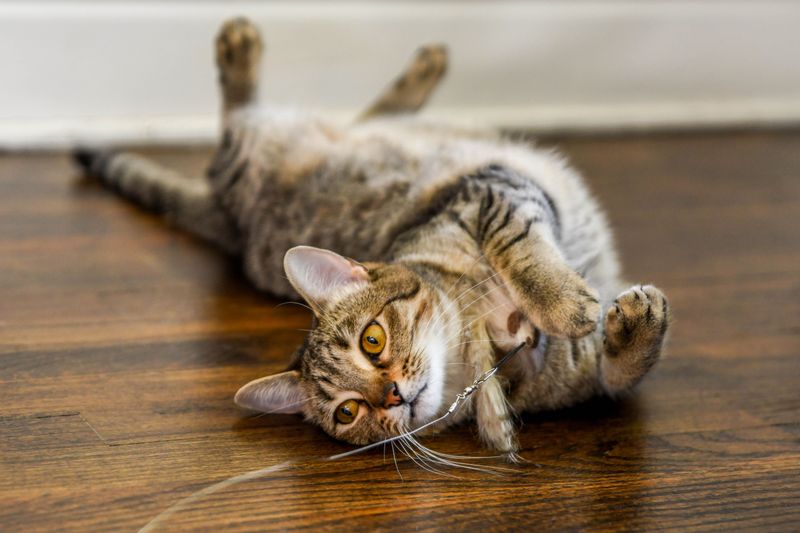
Cats often react to outdoor sounds you might sleep through. A white noise machine masks triggering noises like early morning birds or passing cars.
The gentle, consistent sound creates a peaceful environment for both of you. Many cats find the steady background noise calming, reducing their alertness to minor disturbances that would otherwise prompt investigation.
7. Puzzle Toys Before Bed
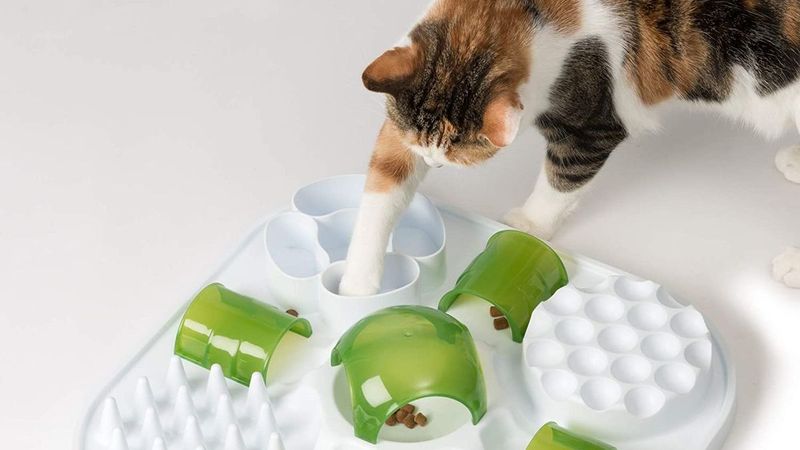
Mental stimulation can be just as tiring as physical exercise. Food puzzle toys engage your cat’s brain while rewarding with treats.
Set up puzzles before bedtime to keep your cat occupied if they wake during the night. The challenge of working for food satisfies hunting instincts and provides entertainment without your involvement.
8. Blackout Curtains
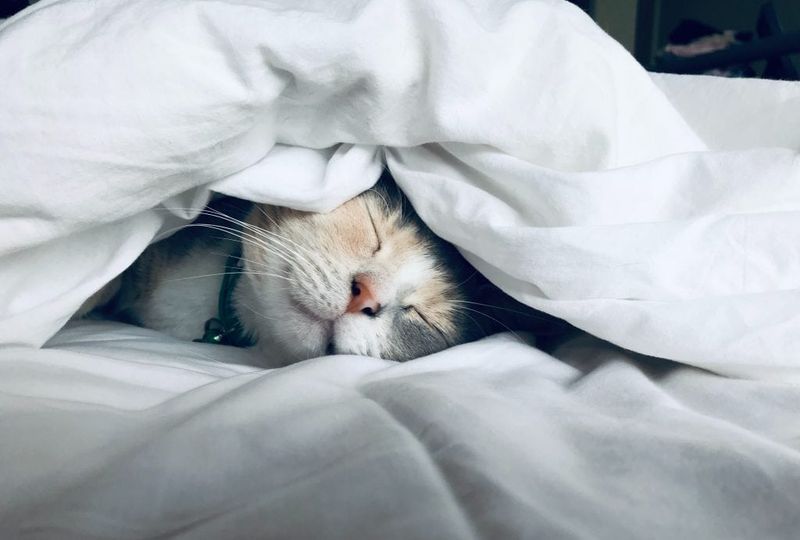
Early morning sunlight can trigger your cat’s natural waking instincts. Blackout curtains block dawn’s first rays, preventing your cat from deciding sunrise means breakfast time.
The darkness signals to your cat that it’s still sleeping time. This simple solution works especially well during summer months when sunrise comes painfully early.
9. Scent Diffusers
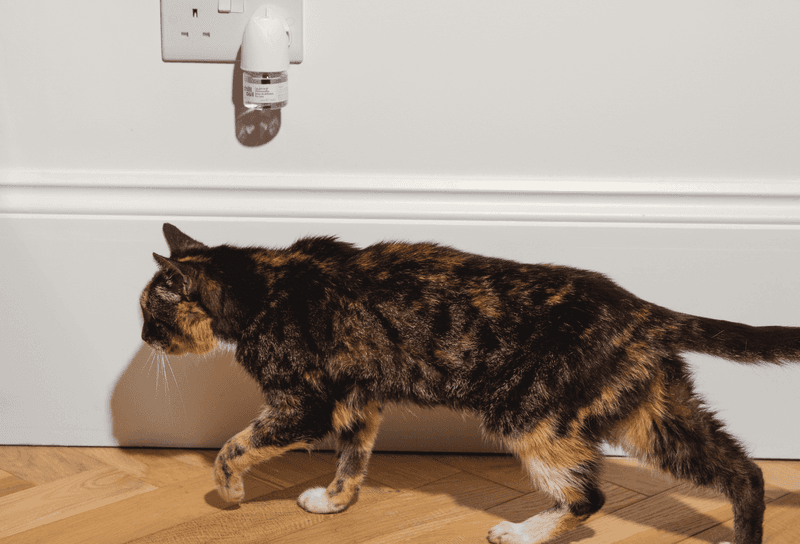
Feline-specific calming pheromone diffusers can work wonders for anxious nighttime behavior. These products mimic natural cat calming signals, creating a sense of security.
Place the diffuser in areas where your cat spends evening time. Many cat parents report reduced nighttime activity and vocalizations after consistent use, though results vary by individual cat.
10. Separate Room Training
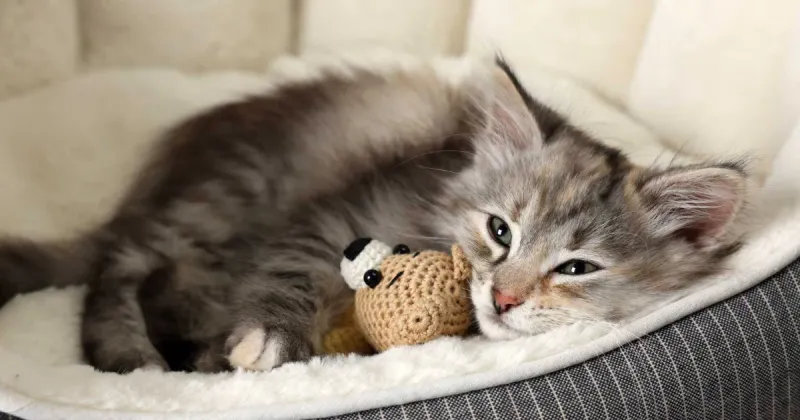
Sometimes the simplest solution is creating a comfortable cat space outside your bedroom. Provide everything your cat needs – litter box, water, toys, and bedding.
Start with short separations and gradually increase duration. The key is making this space positive, not punishing. Your cat will adapt to the new arrangement with consistency and patience.
11. Ignore Attention-Seeking Behavior

Cats quickly learn which buttons to push. When your cat paws your face at 3 AM, any reaction – even negative – rewards the behavior by providing attention.
Completely ignore nighttime antics unless there’s a legitimate concern. This takes tremendous willpower initially! Your consistent non-response teaches your cat that nighttime wake-up attempts simply don’t work anymore.
12. Comfortable Room Temperature
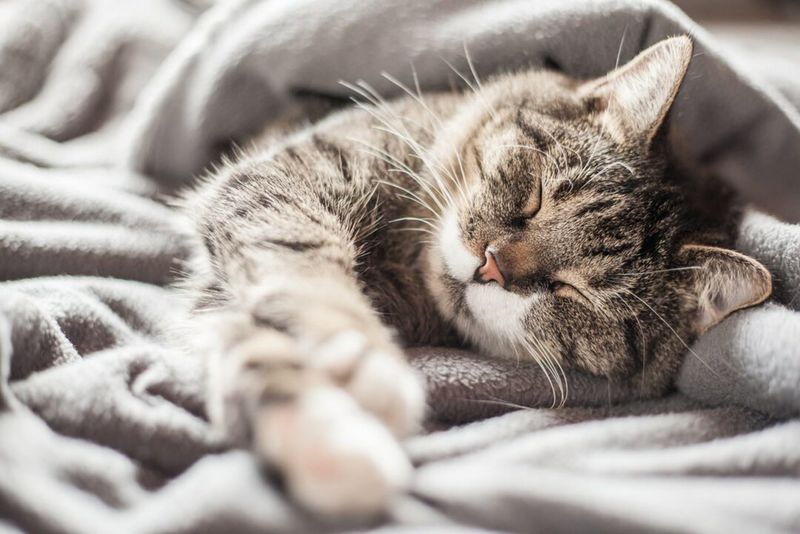
Cats seek warmth when cold and cool spots when hot. Maintain a comfortable room temperature to prevent your cat from disturbing you for body heat or moving restlessly throughout the night.
Consider your cat’s coat thickness when setting the thermostat. Short-haired cats often appreciate a slightly warmer environment than their fluffier counterparts, especially during winter months.
13. Clean Litter Box Before Bed
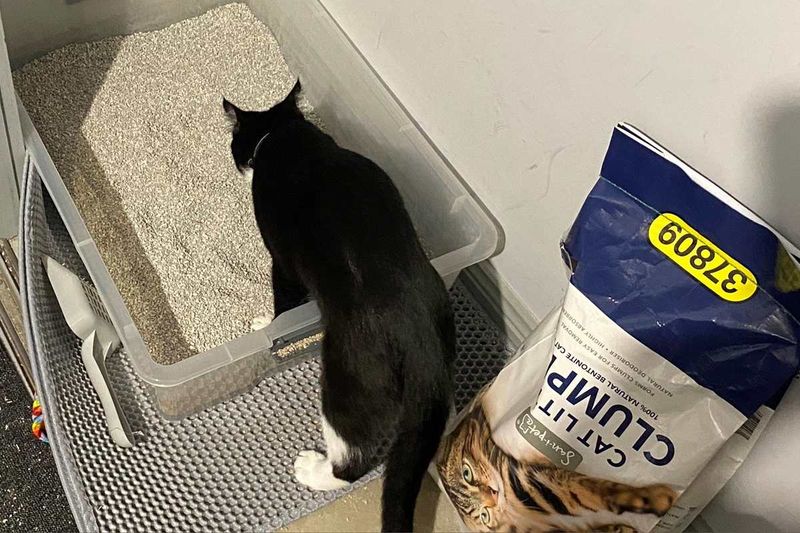
A fresh litter box means fewer nighttime complaints. Many cats refuse to use dirty boxes and will wake you to express their displeasure.
Make evening scooping part of your bedtime routine. This simple habit prevents middle-of-night meowing sessions demanding clean facilities. Some automated boxes self-clean, reducing this particular wake-up cause.
14. Background Television
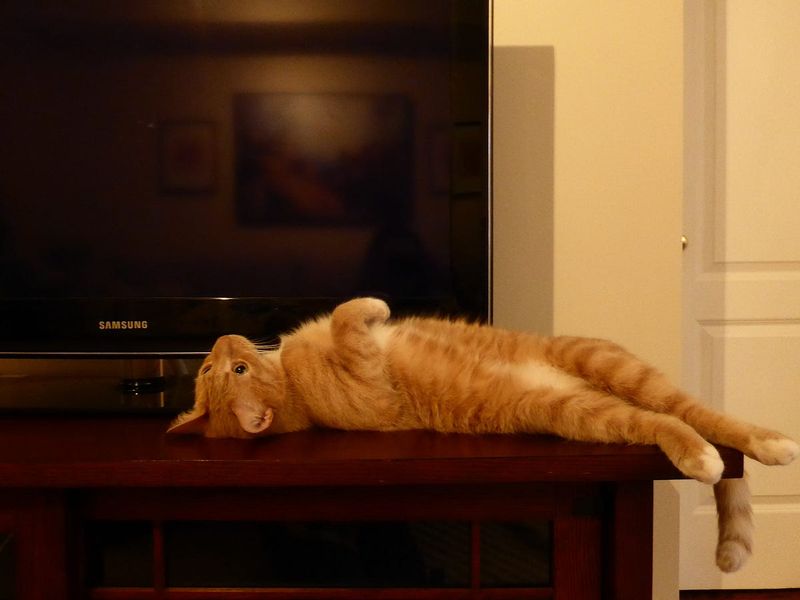
Low-volume background noise from a TV can provide comfort to social cats who miss human interaction at night. Nature shows with gentle sounds work particularly well.
Set a sleep timer to automatically turn off after you’ve fallen asleep. The familiar voices and soft light create an impression of company without actually requiring your participation or attention.
15. Consistent Sleep Schedule
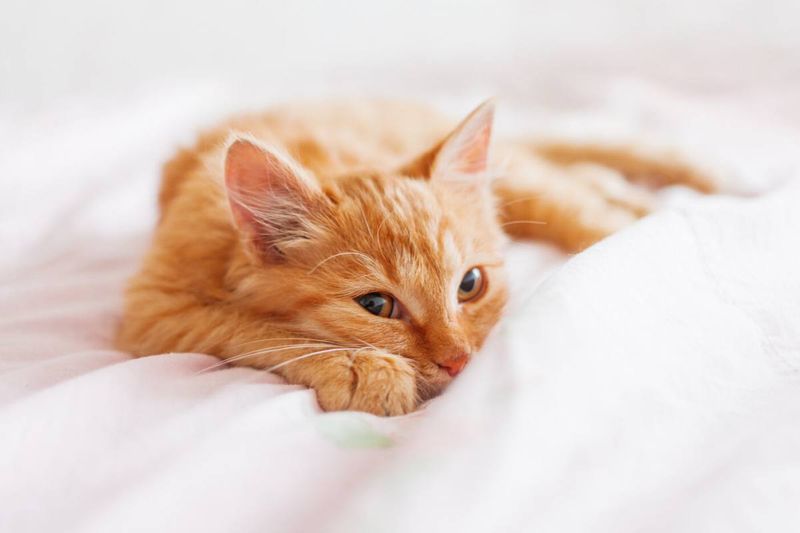
Cats thrive on routine and quickly adapt to human schedules when consistently applied. Go to bed and wake up at similar times each day, including weekends if possible.
Your cat’s internal clock will synchronize with yours over time. This biological alignment reduces those frustrating early morning wake-up calls once your cat learns when breakfast actually happens.






